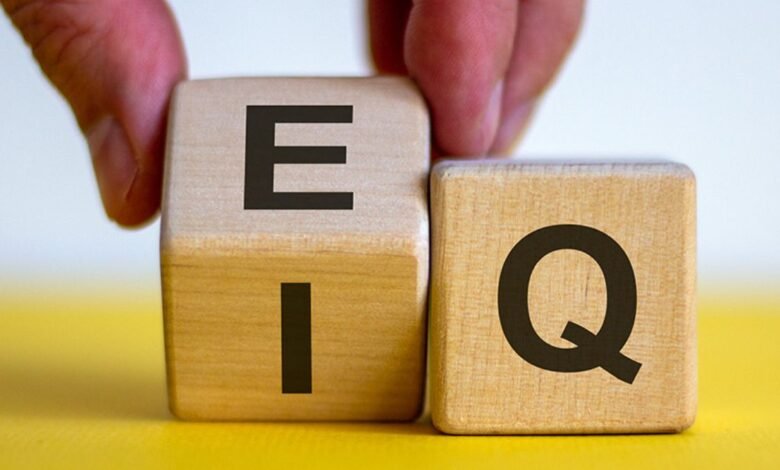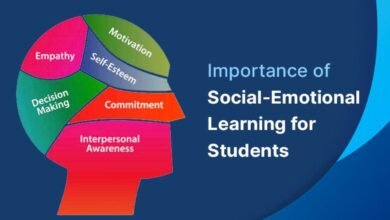The Importance of Emotional Intelligence in Education

Emotional intelligence (EI), a term popularized by psychologist Daniel Goleman in the 1990s, has increasingly become a focal point in discussions about effective education. While traditional education has largely emphasized cognitive skills such as memorization, analytical thinking, and problem-solving, there is a growing recognition that emotional intelligence—understanding and managing one’s emotions and recognizing and influencing the emotions of others—is equally crucial. The integration of emotional intelligence into education represents a shift towards a more holistic approach to student development, recognizing that both cognitive and emotional skills are necessary for success in academics and life. This article explores the importance of emotional intelligence in education, its impact on student outcomes, and the ways it can be fostered in educational settings.
The Concept of Emotional Intelligence
Emotional intelligence is often defined by five core components: self-awareness, self-regulation, motivation, empathy, and social skills. Self-awareness involves recognizing one’s emotions and understanding their impact on thoughts and behaviors. Self-regulation refers to the ability to manage or redirect disruptive emotions and impulses and adapt to changing circumstances. Motivation in the context of EI is not just about external rewards but also about being driven by internal values and goals. Empathy is the capacity to understand the emotions of others and respond with compassion. Finally, social skills encompass the ability to manage relationships, navigate social complexities, and inspire others.
These components are not only crucial for personal development but also for fostering a positive learning environment. When students and educators alike cultivate emotional intelligence, classrooms become spaces where individuals feel understood, respected, and motivated to engage actively in their learning. In this sense, emotional intelligence serves as a foundation for both academic success and personal growth.
The Impact of Emotional Intelligence on Student Outcomes
Research has consistently shown that emotional intelligence can significantly impact various aspects of student life. Students with high levels of emotional intelligence tend to perform better academically. This correlation can be attributed to several factors. Firstly, emotionally intelligent students are better at managing stress, which can enhance their ability to focus and retain information. They are also more likely to set realistic goals and remain motivated to achieve them, demonstrating resilience in the face of academic challenges.
Furthermore, emotional intelligence contributes to better social interactions, which are essential in the collaborative learning environments that characterize many educational settings today. Students with strong EI skills are better equipped to work in teams, resolve conflicts, and contribute positively to group dynamics. This capability not only enriches their own learning experience but also fosters a more inclusive and supportive classroom environment, benefiting all students.
Additionally, emotional intelligence is closely linked to mental health and well-being. In an era where student anxiety and depression are increasingly common, the ability to understand and manage emotions can be a powerful tool for maintaining mental health. Schools that prioritize emotional intelligence can create a culture of empathy and support, reducing the stigma associated with mental health issues and encouraging students to seek help when needed.
Emotional Intelligence and Teacher-Student Relationships
The role of emotional intelligence is not limited to students; teachers’ emotional intelligence is equally important in shaping a positive educational experience. Teachers with high EI are better at building strong, trusting relationships with their students, which is crucial for effective teaching and learning. Such teachers are adept at reading the emotional cues of their students, which allows them to respond appropriately to individual needs and create a supportive learning environment.
Moreover, emotionally intelligent teachers are more likely to employ teaching strategies that foster engagement and participation. They understand that learning is not just a cognitive process but also an emotional one. By creating an emotionally safe classroom, they encourage students to take intellectual risks, ask questions, and express their thoughts without fear of judgment. This openness can lead to a more dynamic and interactive learning experience, where students feel empowered to explore new ideas and perspectives.
The Role of Emotional Intelligence in Conflict Resolution and Discipline
Conflict and disciplinary issues are inevitable in any educational setting, but how they are managed can significantly affect the learning environment. Emotional intelligence plays a crucial role in conflict resolution and discipline, offering a framework for addressing these challenges constructively.
Educators with high emotional intelligence can mediate conflicts more effectively, helping students to articulate their feelings and understand the perspectives of others. This approach not only resolves the immediate issue but also teaches valuable life skills such as empathy, communication, and negotiation. In contrast to punitive disciplinary measures, which often exacerbate negative emotions and reinforce adversarial relationships, emotionally intelligent strategies promote understanding and reconciliation.
Furthermore, schools that incorporate emotional intelligence into their discipline policies tend to focus on restorative practices rather than punishment. Restorative practices aim to repair the harm caused by misbehavior through inclusive dialogue and mutual agreement. This approach fosters a sense of accountability and encourages students to learn from their mistakes, ultimately contributing to a more positive school culture.
Strategies for Fostering Emotional Intelligence in Schools
Given the profound impact of emotional intelligence on student outcomes, it is essential for educational institutions to integrate EI development into their curricula and culture. Several strategies can be employed to foster emotional intelligence in schools:
- Integrating Social-Emotional Learning (SEL) Programs: SEL programs are designed to teach students skills related to emotional intelligence, such as self-awareness, self-management, social awareness, relationship skills, and responsible decision-making. These programs can be incorporated into the curriculum through dedicated lessons or integrated into existing subjects.
- Training Teachers in Emotional Intelligence: Professional development programs focusing on emotional intelligence can equip teachers with the skills needed to create emotionally supportive classrooms. Such training helps teachers to better understand their own emotions and those of their students, improving communication, classroom management, and instructional effectiveness.
- Creating a Supportive School Environment: Schools should strive to create an environment that values emotional intelligence. This can be achieved by promoting a school-wide culture of empathy, respect, and inclusivity. Encouraging open dialogue about emotions and mental health, providing resources for emotional support, and recognizing the importance of emotional well-being in student achievement are key elements of such an environment.
- Encouraging Mindfulness and Reflection: Practices such as mindfulness and reflection can help students develop greater self-awareness and self-regulation. Mindfulness activities, such as meditation or deep-breathing exercises, can be incorporated into the school day to help students manage stress and improve focus. Reflective practices, such as journaling or group discussions, allow students to explore their emotions and experiences in a safe and supportive setting.
- Parental Involvement and Support: Engaging parents in the process of developing emotional intelligence is also crucial. Schools can offer workshops and resources to help parents understand the importance of emotional intelligence and provide them with strategies to reinforce these skills at home. When parents and educators work together, students receive consistent messages about the value of emotional intelligence, both in school and at home.
Challenges and Considerations
While the benefits of fostering emotional intelligence in education are clear, there are challenges to its implementation. One of the primary obstacles is the traditional emphasis on academic achievement, often measured by standardized tests. In many educational systems, there is a strong focus on cognitive skills and measurable outcomes, which can lead to the undervaluation of emotional and social learning. To overcome this challenge, educators and policymakers need to recognize that emotional intelligence and academic performance are not mutually exclusive; rather, they complement each other and contribute to a well-rounded education.
Another challenge is the lack of resources and training for educators. Many teachers may not have the necessary training to teach emotional intelligence or may feel unequipped to handle the emotional complexities of their students. Providing ongoing professional development and resources is essential to support teachers in this endeavor.
Additionally, there can be resistance from parents or stakeholders who may not fully understand the importance of emotional intelligence in education. Effective communication about the benefits of emotional intelligence and its positive impact on student outcomes is necessary to gain their support.
The Future of Emotional Intelligence in Education
As the educational landscape continues to evolve, the integration of emotional intelligence into teaching and learning practices will likely become more prevalent. The growing recognition of the importance of mental health, social skills, and emotional well-being in education underscores the need for a more balanced approach that values both cognitive and emotional development.
Schools of the future will ideally place equal emphasis on academic and emotional skills, preparing students not only for tests but also for life. By cultivating emotional intelligence, educators can help students develop into well-rounded individuals who are capable of navigating the complexities of modern life with empathy, resilience, and confidence.
Conclusion
The importance of emotional intelligence in education cannot be overstated. As we prepare students for the future, it is crucial to equip them with not only cognitive skills but also the emotional and social competencies necessary for personal and professional success. Emotional intelligence fosters a positive learning environment, enhances student outcomes, and promotes a culture of empathy and understanding. By integrating emotional intelligence into education, we can create a more inclusive, supportive, and effective learning experience for all students.



